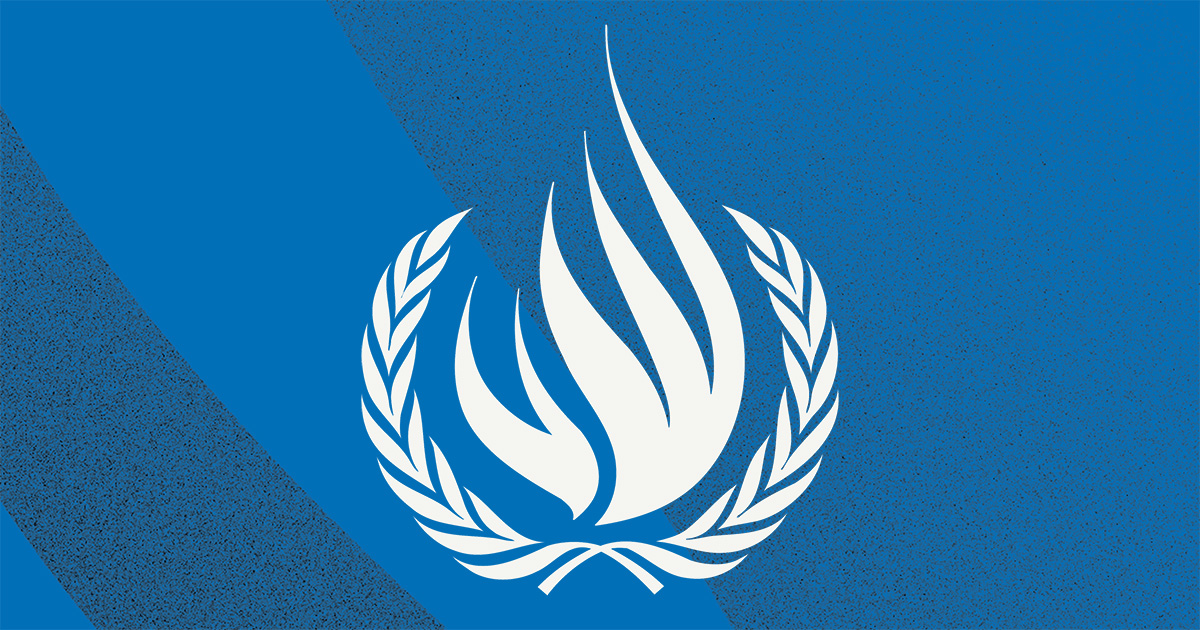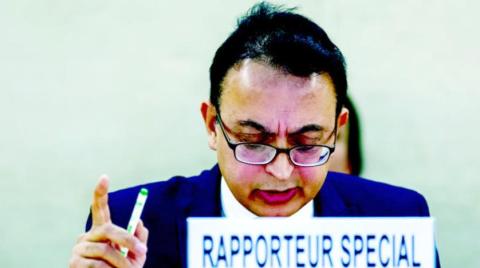
NEW YORK (19 October 2022) – Climate change is an increasingly potent driver of migration that compels millions of people to leave their homes every year and requires decisive actions by States, the UN Special Rapporteur on the rights of migrants, Felipe González Morales, said today in a report presented to the General Assembly in New York.
“Every year, as millions of people are displaced in the context of sudden-onset disasters, the livelihoods of millions more are affected by slow-onset environmental change and degradation,” said González Morales. “Many are compelled to leave their countries of origin, while others remain trapped in at-risk areas,” he said.
While the Special Rapporteur’s report praises several promising practices by States in different regions, it highlights the lack of consistent policies to address the impact of climate change on human mobility.
“States should ensure that they respect, protect and fulfil the human rights of all migrants in the design and implementation of climate change-related migration policies,” the expert said.
He said climate change puts an aggravated burden on marginalised individuals and groups, including women and girls, children, indigenous peoples, minorities, persons with disabilities and older persons.
The report also focuses on national laws and policies indirectly linked to migrants’ admission and their rights to stay in place. “While I take note of some progress, in the absence of explicit recognition of climate change-related challenges and migrants’ protection needs, the latter is not guaranteed,” said González Morales.
“I am concerned by the lack of pathways for regular migration, especially for climate change-related migrants, putting them at risk,” the Special Rapporteur said. “States should apply international human rights law and refugee law where there is a need for international protection when migration occurs in the context of climate change,” he said.
ENDS
Mr. Felipe González Morales (Chile) was appointed Special Rapporteur on the human rights of migrantsin June 2017 by the UN Human Rights Council, for an initial period of three years. His mandate was renewed for three additional years in June 2020. As a Special Rapporteur, he is independent from any government or organization and serves in his individual capacity. He is Professor of International Law at the Diego Portales University, in Santiago, Chile, where he is also the Director of a Master’s programme in International Human Rights Law.
The Special Rapporteurs are part of what is known as the Special Procedures of the Human Rights Council. Special Procedures, the largest body of independent experts in the UN Human Rights system, is the general name of the Council’s independent fact-finding and monitoring mechanisms that address either specific country situations or thematic issues in all parts of the world. Special Procedures experts work on a voluntary basis; they are not UN staff and do not receive a salary for their work. They are independent from any government or organization and serve in their individual capacity.
For more information and media requests please contact Ms. Yiyao Zhang (+41 79 874 7790 / yiyao.zhang@un.org ) and Ms. Isabela Zaleski Mori (consultant.zaleskimori@un.org ).
For media inquiries related to other UN independent experts, please contact Jeremy Laurence (+41 22 928 9855 / renato.rosariodesouza@un.org) or Dharisha Indraguptha ( dharisha.indraguptha@un.org)
Follow news related to the UN"s independent human rights experts on Twitter: @UN_SPExperts.
Concerned about the world we live in?
Then STAND UP for someone"s rights today.
#Standup4humanrights
and visit the web page at http://www.standup4humanrights.org










